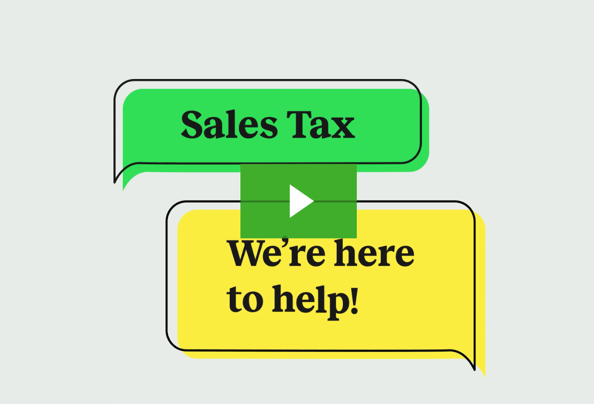Did Our 2015 Sales Tax Predictions Pan Out?
by November 1, 2020
Last year around this time we posted a list of our 2015 sales tax predictions. Today I’m revisiting those predictions to find out how we did. You can find the original list of 2015 sales tax predictions here.
1.) Another Internet Sales Tax Bill Will Appear – In 2014, the Marketplace Fairness Act was the internet sales tax bill to watch, but with all it’s problems, we predicted a new bill would show up. The Remote Transaction Parity Act reared it’s ugly head in June of 2015, and it’s like the bigger, badder brother of the Marketplace Fairness Act. We blogged about the destruction that, if voted into law, the RTPA will cause here.
How’d we do? Spot on. But in all fairness, this bill was rumored as early as late 2014 so we had a bit of a heads up.
2.) States Will Follow in Michigan’s Footsteps – Michigan passed a bill clarifying what their code already said – that actions like storing items in a warehouse create sales tax nexus. We predicted that other states would follow suit, but that didn’t come to pass.
How’d we do? Not great. There wasn’t as much activity on this front as we expected in 2015, but we’re actually going to stick to this prediction for 2016. One reason other states didn’t follow in Michigan’s footsteps? State code in most states already lays out the factors that constitute sales tax nexus. You can see what creates sales tax nexus in every state here.
3.) The Michigan Nexus Law Will be Appealed in the Courts
How’d we do? We’re batting 0 for 2 with Michigan. 2014 saw lots of state sales tax court cases, but if this particular law has been appealed in the courts, we haven’t heard about it yet. My thinking is that, once again, this hasn’t been appealed since it has already been laid out in the Michigan state code. I welcome any other opinions!
4.) States Will Try Even More Creative Methods to Collect Sales and Use Tax – Several states tried new methods to persuade sellers to collect sales tax. Prime Example: Alabama. They’re making it easier for out-of-state sellers to collect sales tax, supposedly in anticipation of some sort of internet sales tax passing.
How’d we do? Nailed it. States want their money and are finding increasingly interesting ways to get it.
5.) States Will Attempt to Become More Streamlined and Tech Savvy – We predicted that states are realizing that sales tax is logistically tough and that they would try to help merchants out. While one state we mentioned, Arizona, did not end up being able to streamline their tough sales tax system, other states like South Carolina made sales tax filing easier.
How’d we do? We got it. Though the process has proven to be slow going, states are trying to make it easier for merchants to collect and file sales tax.
6.) More Sellers Will Use 3rd Party Logistics – Anecdotally, we see more of our customers and more sellers we talk to embracing 3rd party logistics. That said, no major studies about 3rd party logistics and 2015 have been released as of yet. For now we’ll have to take a wait-and-see approach on this one.
How’d we do? Anecdotally, great. But we’re waiting to see if the numbers bear out.
7.) Sales Tax for FBA Sellers Will Become More Complex – We predicted that FBAers would see more complex sales tax burdens.
How’d we do? Unfortunately, spot on. Not only did Amazon open fulfillment centers in more states (Wisconsin, Maryland, Connecticut) they also started using sort and distribution centers even more in order to support their Prime Now Service. Since sort and distribution centers don’t create nexus, but inventory is still shown stored in these facilities in some instances, this makes figuring out where an Amazon FBA seller has sales tax nexus even more complex.
8.) All Online Businesses Will Become Even More Complex
How’d we do? Based on the number of TaxJar customers who sell through multiple channels and/or who file sales tax in multiple states, it does appear that online businesses are become more administratively complex. Another factor we’ve seen grow exponentially? International selling. While, once again, there are no comprehensive “state of eCommerce for 2015” studies out yet, anecdotally, we feel like this prediction came true. We’ll have to wait and see for the numbers to bear that out.
9.) We’ll Hear More about States Enforcing Sales Tax Collection on Remote Sellers
We asked our customers and accounting partners if they felt that states have been more aggressive this year. The usual suspect California continues to enforce sales tax collection on remote sellers. A more unusual place, Alabama, has also gotten aggressive with online sellers. We also heard of sellers receiving “fishing” letters (letters trying to determine if they have sales or income tax nexus) from states such as Kentucky and Nevada.
How’d we do? We still heard about plenty of states trying to enforce sales tax laws on online sellers, though – thankfully – maybe not as much as we expected. Hopefully, as the economy rebounds, states aren’t being quite so aggressive with their sales tax enforcement. Again, the reality of sales tax enforcement remains to be seen in 2016.
10.) More Accounting Pros Will Specialize in Sales Tax
How’d we do? While we can’t be 100% sure more accounting pros are specializing in sales tax, we were able to add more vetted partners to our CPA Partners page this year. With eCommerce taking a bigger bite out of the retail economy, we’re going to speculate that this prediction came true, even if some accountants are specializing in sales tax only reluctantly!Please note: This blog is for informational purposes only. Be advised that sales tax rules and laws are subject to change at any time. For specific sales tax advice regarding your business, contact a tax advisor.








